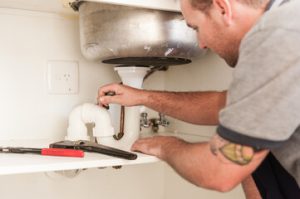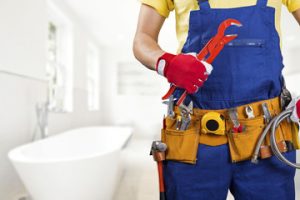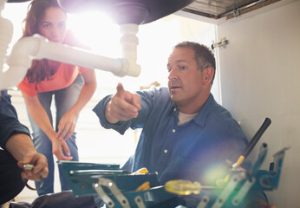If you’re facing a plumbing emergency, it’s important to know what to do and where to turn for help. This will minimize damage, save time, and money.

Fortunately, there are certain signs that indicate when to call Emergency Plumber Westminster. Some of the most common include: major leaks, flooding, sewage backup, and unexplained spikes in your water bill.
A leaking pipe is not only a major inconvenience for any homeowner, but it can also lead to significant damage over time. This is because even a small leak can cause water damage to the interior of the house, leading to rotting, mold growth, or other issues. As such, it is important to address any leaks as soon as possible to limit the damage.
Leaking pipes can be caused by a number of factors, including aging, poor installation, and external influences such as weather and soil conditions. However, with proper care and regular maintenance, many of these problems can be prevented. For example, homeowners should ensure that they use a drain strainer to catch any debris in the sink or toilet, and they should never flush anything down the drain other than human waste and toilet paper (ideally, septic-safe toilet paper). Additionally, homeowners should have their plumbing systems regularly assessed by a professional plumber to prevent buildup and blockages from occurring.
When a leak does occur, it is essential to take immediate action. This can be done by shutting off the water supply to the affected area and by placing a bucket or container under the leak to collect any dripping water. Additionally, it is important to contact a professional plumber as soon as possible to identify the problem and determine the best course of action.
Depending on the type of leak and its severity, there are various ways in which it can be repaired. For example, if the leak is due to old age or corrosion, it may be possible to replace the affected section of pipe. In other cases, it may be more effective to simply re-route the pipe in order to prevent further damage.
A common cause of leaking pipes is poor connections, and this can be solved by tightening or replacing the relevant parts. In addition, a professional plumber will inspect the entire plumbing system to identify any other potential problems and recommend any necessary repairs or replacements. After the repair is complete, the plumber will test the system to ensure there are no leaks or other issues and the water pressure is correct.
Clogged Drains
A clogged drain can be a huge inconvenience. It can result in costly water damage and leave you without functioning plumbing fixtures. A clog can be caused by many things, including hair, wipes, oily substances, and food waste. It is important to call an emergency plumber if the issue is severe and doesn’t resolve with running water or a plunger. Clogged drains that are left untreated can lead to flooding, structural damage, and serious health issues.
An experienced emergency plumber will be able to diagnose the problem quickly and find the best solution. They will also know how to prevent the issue from happening again in the future. It is best to have a reliable emergency plumber nearby so that you can call them when needed.
It is a good idea to research local plumbers and their service areas before an emergency occurs. This will help you find one with the right qualifications and experience. Also, look for reviews on trusted search engines to see what other customers have to say about their services.
When looking for an emergency plumber, choose one who is licensed, insured, and has a track record of providing excellent customer service. A trustworthy plumber will also be able to provide you with a free estimate before starting any work. This will allow you to feel confident that the plumber is charging a fair price for their services.
Plumbing problems tend to arise at the most inconvenient times. They can be frustrating and stressful for homeowners, but they don’t have to be. With the help of an emergency plumber, you can minimize the effects of these problems and save money in the long run. By following these tips, you can find a reliable plumber that will be available to assist you when you need them the most.
Broken Water Heater
Water pooling around your water heater is an indication that it may not be working properly. If you have an older tank, it could rust through and burst, flooding your garage or basement. If you have a newer tank, it could be experiencing problems with the heating element or burner. In either case, it is important to call a plumber or water heater technician right away.
The first thing you should do is turn off the power to your water heater by flipping the circuit breaker in your electric service panel to the OFF position. You can also use a non-contact voltage tester to make sure no electricity is flowing to the water heater. If there is no sign of a problem with the electrical system, you should be able to start it up again by turning the breaker back on and testing for any signs of current flow.
If there is a sign of a gas leak, you should shut off your home’s gas supply at the main valve to the house and contact your local gas company for assistance. You should also check for any visible signs of damage or a kink in the gas line that leads to your water heater.
After you have turned off the water and gas supplies to your water heater, you should begin the cleanup process. Remove any water-logged furniture and take photos of the water damage for your insurance company if possible. Once the water is removed, you can use a wet/dry vacuum to get rid of any remaining moisture and run dehumidifiers or floor fans to speed up the drying process. You should then call a water restoration contractor that can remove and replace any drywall or floors damaged by the flooded water heater, sanitize the area, and restore it to like-new condition.
Sewage Backup
Sewage backup is one of the most serious plumbing problems homeowners can face. When wastewater can’t flow down the sewer line, it moves back up through drains and toilets, contaminating everything in its path. This can lead to structural damage and a wide range of health issues. Fortunately, understanding the causes of sewage backup and taking preventative measures can help you protect your home and save money on repair costs.
The primary cause of sewage backup is blockages in the sewer line, either on your property or in the city main. These can be caused by debris that is flushed down the drains, such as hair, soap scum, food scraps, coffee grounds, cotton swabs, and toys. It’s also common for older homes to have sewer lines made of clay or cast iron, which are more likely to break down over time.
Regardless of the cause, it’s important to act quickly if you experience a sewage backup. First, get everyone out of the affected area and shut off any utilities. Then, contact a professional restoration company to clean up the mess. Using a professional restorer ensures that all areas affected by the sewage backup are properly cleaned and disinfected to prevent any further damage or potential health risks.
It’s also important to keep in mind that sewage water is extremely dangerous, especially for children and the elderly. Wear protective clothing like rubber gloves and waterproof boots, and stay away from the impacted area to avoid direct skin contact. Additionally, make sure to ventilate the area as much as possible to minimize odors and harmful airborne chemicals.
Once the cleanup is complete, it’s crucial to assess your property damage and make a note of any items that are unsalvageable. This will help you file an insurance claim. You can also mitigate future problems by installing a backwater prevention valve. This device is installed into the sewer line in your basement and helps to prevent sewage from backing up into your home.
A sewage backup is one of the most devastating and costly plumbing problems that you can face. The good news is that it’s not impossible to repair. By identifying common causes, taking proactive measures, and hiring emergency plumbers when necessary, you can safeguard your home and save money on repairs.

